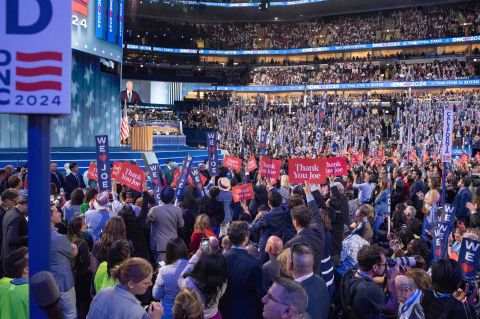A Tragic Tale of Corn and Congress

Ever since Iowa landed the privilege of holding the first Presidential primary, no candidate has the political courage to confront the $11 billion subsidy price tag of US corn ethanol. Everyone agrees we need to dilute our supply and price vulnerability in transportation fuels and everyone agrees we need to decarbonize the transport sector. But surely not this way.
There is no environmental justification for corn ethanol if net carbon savings are counted across the entire range on inputs of the final product - including alternative land use. And by most calculations, the few tons of CO2 saved probably cost tax payers over $700 per ton. Maybe the learning experiences of handling biofuels, blending, combustion technologies and infrastructure will help us move on to second generation biofuels. But does our apprenticeship have to be so expensive and damaging? It is hard to balance a budget this way.
Forty percent of the world’s corn is grown in the US and 40% of that goes into producing ethanol. America’s livestock now consume less corn that America’s alambics. Meanwhile, the price of corn has doubled to nearly $8.00 a bushel in a year which aggravates a food crisis that is visible every night on the television. America’s corn ethanol program does not cause the hunger around the world - but its impact on grain markets certainly makes hunger harder to resolve. Of course starving Africans don’t vote in the US.
Even Brazil has understood that if food conversion to ethanol starts to impair broader welfare through price inflation, it’s time to cut back on support for the scheme. Ironically, reduced production of sugar-based ethanol in Brazil is being compensated by exports of subsidized US corn-based ethanol from the US. Fortunately for US producers, the US only has an import duty of 54 $cents on alcohol, but no export levy.
No one believes for a moment that the US will scrap its corn ethanol program and save the whole $11 billion in subsidies, but at a minimum the program is over-subsidized. It cannot be justified on energy policy grounds or environmental policy grounds. So if it’s only real justification is political, it is time to restore corn to the food chain. The US Senate seems to know this. The Obama Administration should seize the opportunity to undo this program.

Available in:
Regions and themes
Share
Related centers and programs
Discover our other research centers and programsFind out more
Discover all our analysesIndia’s Green Hydrogen Strategy in Action: Policy Actions, Market Insights, and Global Opportunities
India is poised to remain the world’s fastest-growing major economy, and this rapid growth is driving a sharp rise in energy demand. As the most populous country on the planet, India urgently needs to decarbonize its energy systems.
Water in Mexico: an Emergency that Will Wait
Access to water is already and will become increasingly problematic for Mexican economic actors due to the progressive scarcity of the resource resulting from climate change, a geographical distribution that does not coincide with that of the population or economic activity, and management that has so far been far too lax.
AI, Data Centers and Energy Demand: Reassessing and Exploring the Trends
The information and communication technologies sector today accounts for 9% of global electricity consumption, data centers for 1-1.3%, and artificial intelligence (AI) for less than 0.2%. The growing energy demands of cloud services first, and now AI workloads (10% of today’s data centers electricity demand), have exacerbated this trend. In the future, hyperscale data centers will gain shares amongst all kinds of data centers and AI will probably account for around 20% of data centers electricity demand by 2030.
Unlocking India’s Energy Transition: Addressing Grid Flexibility Challenges and Solutions
India is rapidly scaling up its renewable energy (RE) capacity, adding 15–20 GW annually, but the ambitious goal of 500 GW of non-fossil capacity by 2030 is at risk unless the pace accelerates.











